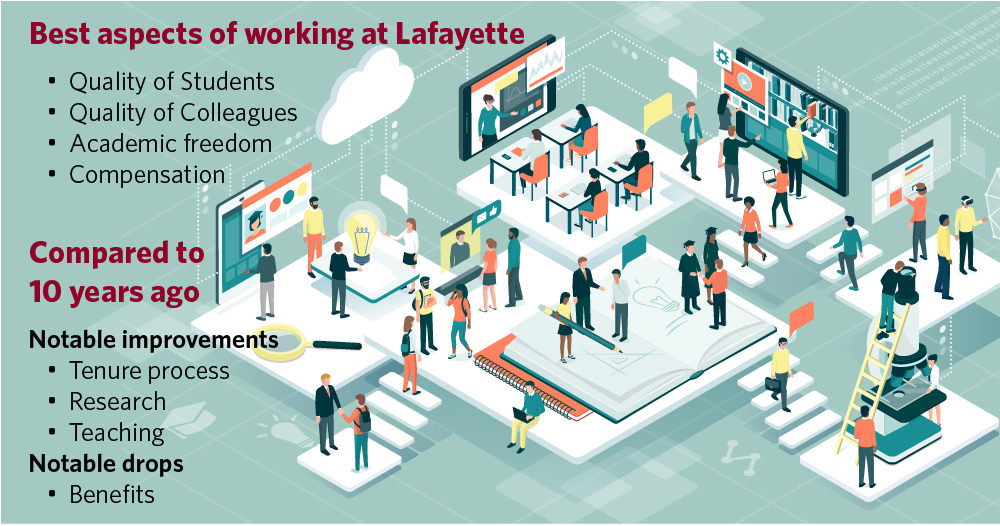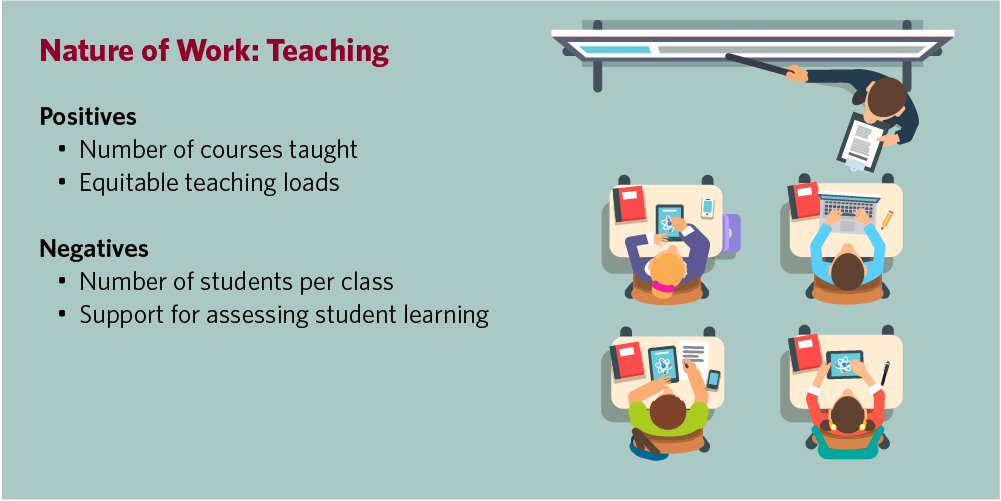Faculty Satisfaction Survey 2019-2020
During the 2019-20 academic year, 72% of Lafayette’s faculty participated in the Collaborative on Academic Careers in Higher Education Faculty Satisfaction Survey, administered by the Graduate School of Education at Harvard University.
 All faculty ranks were included and well represented in the survey. My thanks to those who participated in this important work.
All faculty ranks were included and well represented in the survey. My thanks to those who participated in this important work.
I am happy to report that Lafayette faculty gave high marks, relative to comparable institutions, on topics that included facilities and resources, teaching and research, mentoring, and senior leadership. Our faculty identified the quality of our students and their colleagues, academic freedom, and compensation as the “best aspects” of teaching here. Of those, compensation is not commonly on this list among our comparison schools.
On the other hand, there is work for us to do. Faculty here rated several categories less favorably than did faculty at other institutions, including benefits, faculty leadership and departmental collegiality. Shared governance received split scores from Lafayette’s faculty: strong on trust and shared purpose but weak in adaptability and productivity. Finally, the survey identified four “worst aspects” of faculty life at Lafayette that we will address in the coming years. Three of them (too much service, an unrelenting pressure to perform, and teaching load) also are common concerns at comparison schools. The fourth, lack of diversity, is a greater concern here than among our peers.
I also want to note that In comparison to Lafayette’s previous COACHE survey in 2008-09 (which included pre-tenure faculty only), tenure policies and the clarity of tenure expectations improved significantly relative to comparison schools, as did compensation, research and teaching. The improvements in clarifying tenure expectations were achieved by multiple efforts led collaboratively with members of the provost’s office and the faculty over several years. I believe that the improved rating on compensation satisfaction can be directly linked to the College’s efforts in recent years to reach the mid-point among an ambitious, self-identified peer group.
These survey results provide a roadmap for the College toward strengthening faculty satisfaction in areas that show need for improvement, and celebrating and enhancing those areas of pride felt by those who teach here.
John Meier
Provost
OVERALL GRADES
COMPARISON INSTITUTIONS
These Peer Group institutions also administered the COACHE Survey during 2019-20
- Davdison
- Gettysburg
- Harvey Mudd
- Mount Holyoke
- Washington and Lee
Lafayette’s Cohort includes the Peer Group and 22 other institutions, some of whom administered the survey prior to 2019-20.
- Amherst
- Colgate
- Kenyon
- Mills
- Muhlenberg
- Sewanee: The University of the South
- Wellesley


